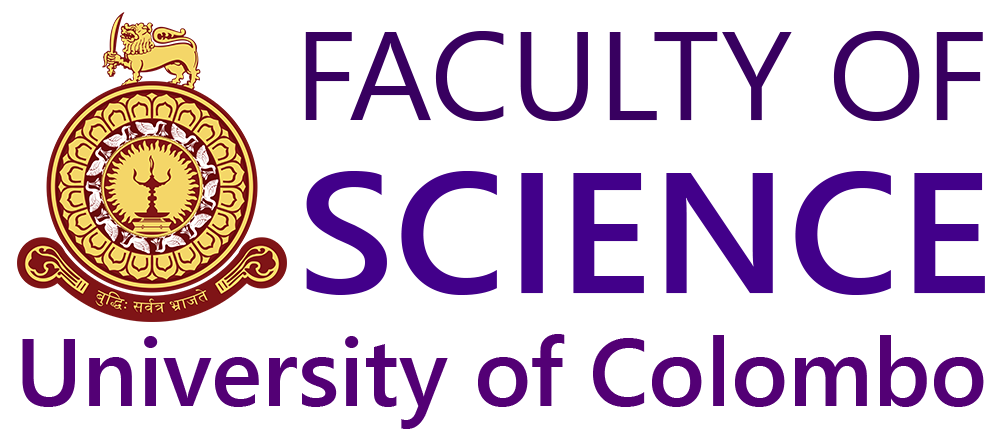Examinations
All examinations are conducted and completed within a given semester except courses having practical or research projects. No theory course in the 03-year BSc degree programme is conducted over two semesters.
The duration of the end of semester theory examinations vary from one hour (for one credit courses) to a maximum of three hours (for courses of three or more credits). The academic Departments decide the duration of practical and oral examinations.
The results of all examinations are released usually within two months of completion of examinations.
Completion of course units
The student must participate in and complete all the assessment procedures (i.e. Assignments, continuous assessments, mid-semester and final examinations, practical assessments, etc., whichever are applicable) for each course unit for which he/she has registered, and obtain a final grade for each course unit for it to be considered as ‘complete’. All course units for which the student has registered shall be considered for calculation of the final GPA and the awarding of the degree. If a student is absent for any or all assessment procedures of a course unit and has not repeated them thereafter, the course unit shall be considered as ‘incomplete’, and a provisional grade of NC shall be assigned. This grade shall be changed to the appropriate grade once the student has completed the course.
Repeating examinations
A student obtaining a grade below C may re-sit the course examination for the purpose of improving the grade. The grades obtained in the first and subsequent attempts shall all be listed in the academic transcript. The highest grade obtained is used for the calculation of the final GPA. However, the highest grade considered for the determination of award of a class, as well as for the determination of eligibility for the BSc Honours degree programmes, is a C.
Important Rules
1) A student shall be considered to have sat the first scheduled examination irrespective of whether he/she has actually sat or not, unless he/she has been prevented from sitting the examination due to illness or any other reasonable cause, which must be accepted as valid by the Faculty Board.
2) A student who fails to complete any course in the first attempt shall be eligible to repeat it in two more attempts only. In counting the number of attempts, (1) above shall also be taken into account.
Students should be aware that they can re-sit an examination only within the time limit specified to complete the degree programme (maximum of 06 academic years). Therefore, students are strongly advised to obtain good grades from the very beginning of their study programmes.
Medical Certificates
If a student has been prevented from sitting an examination due to illness, the student should submit a Medical Certificate (MC) to the Chief Medical Officer/University Medical Officer, within the stipulated period of time. Students are strongly advised to read the University guidelines for submission of MCs, since a MC can be rejected if specific requirements are not fulfilled. See pages 81 – 83 for details.
In the event that the medical certificate is accepted as valid, the student may sit the examination subsequently without a penalty, and the earned grade shall appear in the transcript. If a student fails to submit a valid medical certificate on being absent for an examination, it shall be recorded as “AB” in the transcript and subsequent attempts shall be considered as repeat attempts.
Examination Offenses
Examination offenses fall into any of the following misconducts that may be committed by students during the conduct of an examination.
- Possession of unauthorized documents and/or devices
- Removal of examination stationary from the examination hall
- Copying
- Obtaining or attempting to obtain improper assistance
- Cheating or attempting to cheat
- Impersonation
- Disorderly conduct
- Aiding and abetting the commission of any of the above offenses
When submitting reports/dissertations which will be evaluated (e.g., research projects, laboratory or field reports) committing plagiarism is considered a serious offense, equivalent to an examination offense. Plagiarism is:
- Submitting another person’s work as your own
- Including another person’s work (language, ideas, results, data, graphics, images etc.) in your submissions without proper acknowledgement or citation
- Copying another person’s paragraphs or sentences into your work without any changes, even when the sources are cited
- In cases where it is necessary to quote (copy word to word) a sentence or two of someone else’s language, failure to put such sentences within quotation marks
Any candidate who is found guilty of an examination offense or plagiarism is liable to any one or more of the following punishments:
- Removal of his/her name from the pass list
- Cancellation of his/her candidacy from the whole or part of the examination
- Suspension from any University examination for such period as the Senate may decide, or indefinitely
- Suspension from the University for such period as the Senate may decide, or expulsion from the University
